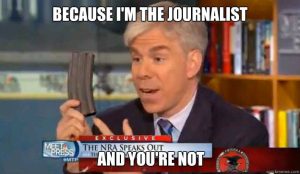Editor’s Note: In The Charles Schwab Guide to Finances After Fifty, Carrie Schwab-Pomerantz answers your questions about personal finance and more. Here, she offers tips for money management.
QUESTION: I’m too busy to manage my money carefully. Are there any simple strategies for someone like me?
You might be surprised to learn that I have someone else manage my money. For me, it’s not a matter of disliking money management (after all, personal finance is my chosen field!), but rather a matter of time. Like so many others of our age, I have a busy professional and personal life, and can’t follow my investments as carefully as I know I should.
For me, it’s also a matter of my nature. I love to collaborate, and I value others’ expertise. And apparently I’m not alone. During the height of the recession my husband asked our advisor if his phone had been ringing off the hook. To our surprise, he said “no.” In fact he had received only one frantic phone call – and that was from the client who always called. The rest, like us, were comfortable knowing that our advisor was keeping a watchful eye.
So whether your life is complicated, or you find the market ups and downs too frustrating, or you’d just rather spend your time doing something else – sometimes the best thing you can do is let someone else handle your money for you.
Now, some people might immediately think that it only makes sense to have professional management if you have a lot of money or a complicated financial life. After all, it’s not free. But fortunately, money management comes in a lot of flavors – from a single fund you can invest all or part of your money in, to a financial advisor to consult with periodically, to a manager who will handle all your finances for you. Your choice depends on how involved you want to be and how much you’re willing to pay.
For a Simple, Low-Cost Solution, Consider a Target Fund
In today’s increasingly complicated financial markets, a lot of people are looking for a way to invest that doesn’t require a huge time commitment. They know they need to have a reasonable number of investments to make that happen; they want professional help in choosing investments; but they also don’t want to pay a fortune for it. In response, fund companies have come up with a different breed of mutual fund: a target fund – which is a diversified portfolio of stocks, bonds, and cash managed by a professional investment manager to meet a specific goal. You might call it a single-portfolio solution.
Of course, no single portfolio is going to match the needs of every investor, so there are several different target funds to choose from. That’s where your work comes in, because to choose the appropriate target fund, you have to think about how much risk you want to take and how long you have to invest.
One of the beauties of target funds is that the minimum initial investment can be as low as $100. So you can test the waters with as little or as much money as you wish. And whether you choose a target risk fund or a target date fund, you pay for it through an expense ratio, which represents the fund’s annual operating expenses as a percentage of the assets managed. You don’t pay this fee directly. It is deducted from your returns.
If You Have a Fair Amount to Invest, Look into a Managed Account
A target fund is a type of mutual fund managed for a pool of investors. A managed account is a more personalized investment. It is actually a fund managed for a single investor. When you invest in a mutual fund like a target fund, you own shares of a pool of securities with other investors. But when you invest in a managed account, you actually own the underlying stocks, bonds, and cash investments. It’s like your own personal mutual fund. Account minimums for managed accounts range from $25,000 upward and fees are generally 1 percent or more of assets managed. But if you have a fairly large amount of money and want more personal management, it might be worth it.
Want One-on-One Advice? Find the Financial Advisor Who’s Right for You
Another option is working with a financial advisor. This is especially appropriate if your finances are complicated or if you have substantial assets. But others may also appreciate and benefit from the one-on-one advice of a financial advisor. Advisors offer a wide range of services, from one-time consultations to periodic check-ins to complete hands-on management.
No Matter What, Stay Involved
Whatever type of management help you choose, I can’t emphasize enough how important it is to stay in touch with your money. Whether you decide on a solution like a target fund or full-time management, you’ll receive periodic reports and updates on the progress of your portfolio. Don’t just file them away – read them. At a minimum, you should be checking in with your accounts annually to review your investments.
Caution: It’s always smart to keep in mind that, as with the value of any other mutual fund, the value of a target fund is never guaranteed, not even at the target date (the expected date at which many investors are likely to begin withdrawing from the fund). The value of the fund will fluctuate up to and even beyond the target date, and the asset allocation will change over time according to the fund’s prospectus. When shopping for a target fund, be sure to compare past performance, asset allocation, and expense ratios. Also make sure that you understand the fund’s time frame.
Adapted from the book The Charles Schwab Guide to Finances After Fifty: Answers to Your Most Important Money Questions by Carrie Schwab-Pomerantz with Joanne Cuthbertson. Copyright 2014 by The Charles Schwab Corporation. Published by Crown Business, an imprint of the Crown Publishing Group, a division of Random House LLC, a Penguin Random House Company
Read more on Everyday ebook
(610)
Report Post






